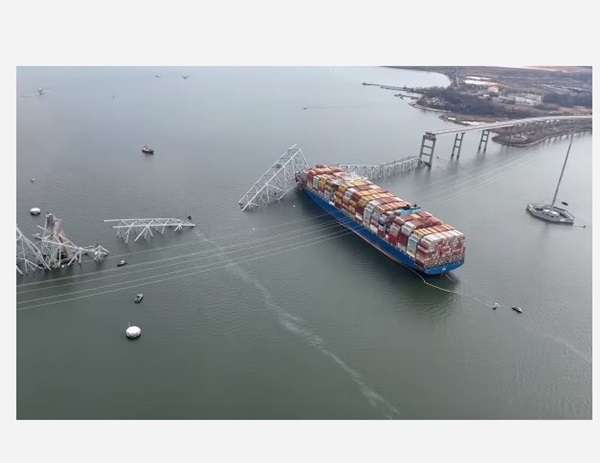BALTIMORE, MD—A team of Johns Hopkins engineers has begun an urgent risk assessment of the country’s bridges in the wake of the Key Bridge collapse in Baltimore.
The assessment is being conducted with the help of the National Science Foundation Rapid Response Research grant and will focus on the larger bridges near major ports of entry.
The team, led by Michael Shields, a Johns Hopkins engineer specializing in risk assessment, is seeking to modernize risk prediction models, considering the shipping industry’s evolution since the bridges were most commonly built in the 1970s.
“We need to know now, not five or 10 years from now, whether there is an outsize risk to bridges across the country so that critical investments—which will take years—can begin immediately if they are needed,” said Shields. “The Key Bridge collapse was a wake-up call.”
“Clearly the risk to the Key Bridge was very different in 2024 than it was in 1977 when the bridge opened. But we don’t currently understand that risk,” Shields added.
The research team believes that the risk of the Key Bridge collapse was underestimated and that the probability of another catastrophic collision in the U.S. is likely “much higher” than current design standards presume. This assessment will help policymakers prioritize infrastructure improvement spending, Shields said.
The team will mine global shipping data and develop modern risk models to assess the probability of a ship deviating from its path and hitting a bridge. It will also identify which critical U.S. bridges are vulnerable to a catastrophic ship collision. The findings will be used to inform policymakers and the public about the importance of bridge infrastructure spending.
The $1.7 billion to $1.9 billion cost to rebuild the Key Bridge and the potential billions needed to retrofit existing bridges makes it essential to conduct accurate risk assessments, said Ben Schafer, a structural engineer and professor in the Department of Civil and Systems Engineering.
The team has already begun its investigation and hopes to share some preliminary results with stakeholders by the end of the summer, with the full study taking approximately one year to complete.
This article was written with the assistance of AI and reviewed by a human editor.
Photo via the Baltimore County Police Department


